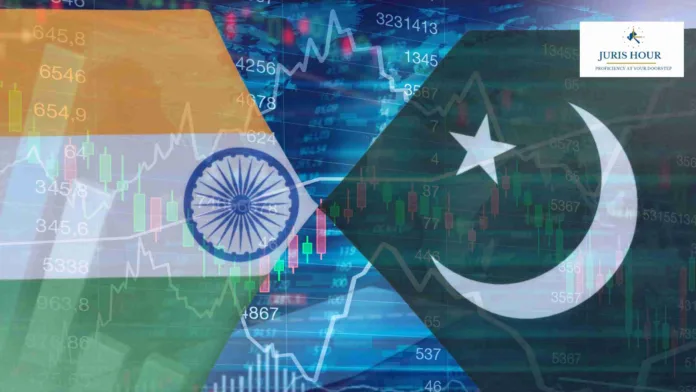The recent escalation in Indo-Pak tensions has sent ripples through financial markets, with the Nifty 50 and BSE Sensex experiencing significant declines, and the Indian rupee hitting its lowest point in over a month . In such volatile times, investors must adopt strategic measures to protect and potentially enhance their portfolios.
1. Maintain Investment Discipline
- Continue SIPs and STPs: Systematic Investment Plans (SIPs) and Systematic Transfer Plans (STPs) are designed to navigate market volatility. Historical data indicates that markets often rebound after geopolitical crises, making continued investments beneficial in the long term.
- Avoid Panic Selling: Reacting emotionally to market downturns can lead to suboptimal decisions. It’s crucial to stay the course and focus on long-term objectives.
2. Diversify Your Portfolio
- Asset Allocation: A balanced portfolio might include:
- 30% in government bonds
- 25% in defensive stocks (e.g., consumer staples, healthcare)
- 15% in gold and precious metals
- 10% in energy stocks
- 10% in defense stocks
- 10% in cash for liquidity
- Geographical Diversification: Investing in assets across different countries can mitigate region-specific risks .
3. Focus on Defensive and Resilient Sectors
- Defensive Stocks: Sectors like healthcare, consumer staples, and utilities tend to be less affected by geopolitical tensions.
- Defense and Cybersecurity: Companies in these sectors may see increased demand during conflicts.
4. Consider Safe-Haven Assets
- Gold: Traditionally, gold has been a reliable store of value during times of uncertainty. Investing in gold ETFs or sovereign gold bonds can provide exposure without the need to hold physical gold.
- Government Bonds: High-quality government bonds can offer stability and predictable returns during turbulent periods.
5. Reassess Currency and Real Estate Investments
- Currency: Holding large amounts of cash might not be advisable due to potential inflation and currency depreciation during conflicts.
- Real Estate: Investing in land, especially in stable regions, can be a prudent move, as it often retains value better than built properties during conflicts .
6. Stay Informed and Consult Professionals
- Monitor Developments: Keep abreast of geopolitical events and understand their potential impact on markets.
- Seek Expert Advice: Engage with financial advisors to tailor strategies that align with your risk tolerance and financial goals.
Conclusion
While geopolitical tensions introduce uncertainty, they also present opportunities for informed investors. By maintaining discipline, diversifying assets, focusing on resilient sectors, and seeking professional guidance, you can navigate these challenging times and safeguard your financial future.
Read More: Govt. Grants Full Customs Duty Exemption on Artworks and Antiquities for Public Exhibitions

